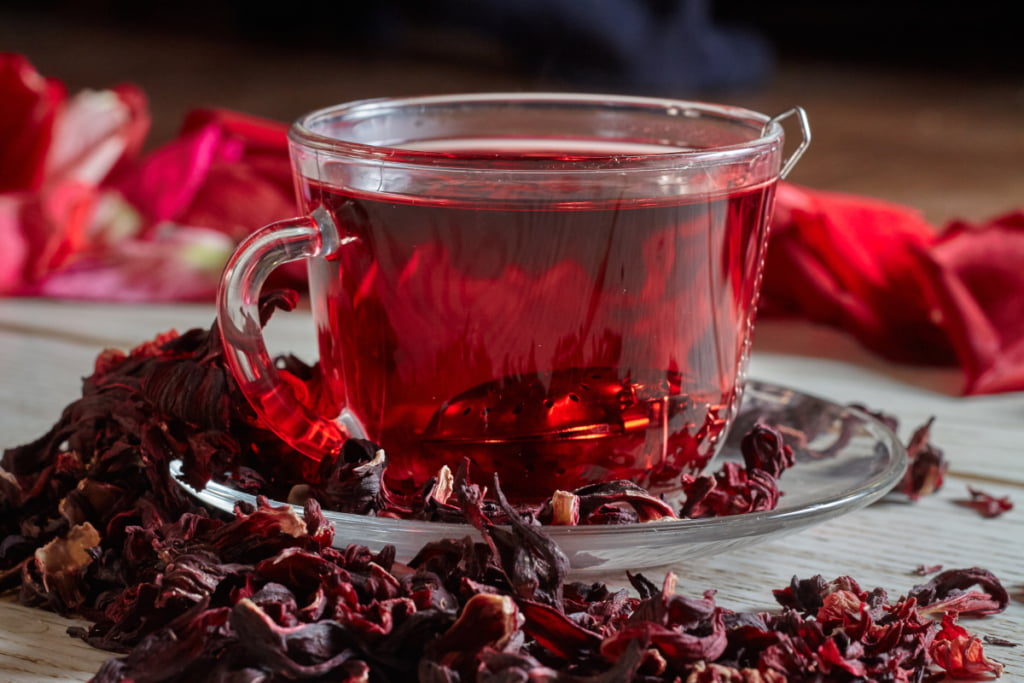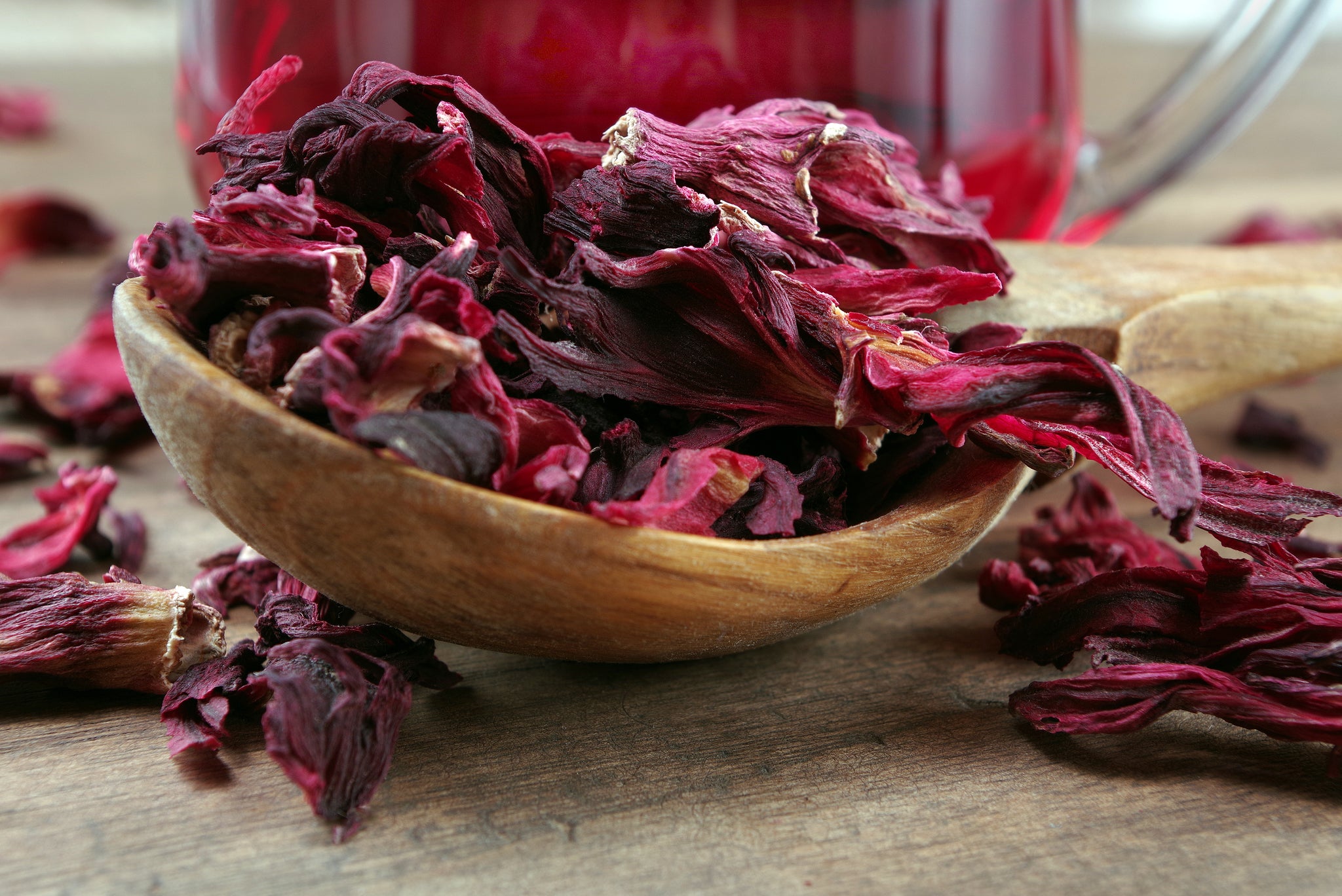Hibiscus, with its vibrant colors and delicate petals, is not just a sight to behold but also a treasure trove of versatile uses. Among its many forms, dried hibiscus stands out as a popular choice due to its long shelf life and concentrated flavors. From culinary applications to therapeutic benefits, the uses of dried hibiscus are abundant and diverse. In this article, we will delve into the multifaceted uses of dried hibiscus, exploring its culinary, medicinal, and cosmetic applications.
Culinary Uses:
- Herbal Teas: Dried hibiscus petals are commonly used to brew herbal teas, imparting a refreshing tartness and a rich crimson hue to the beverage. Hibiscus tea is enjoyed both hot and cold and is known for its tangy flavor profile, often enhanced with the addition of citrus fruits or spices like cinnamon and ginger.
- Culinary Garnish: Dried hibiscus petals serve as an attractive and flavorful garnish for various dishes, adding a pop of color and a subtle floral note. They can be sprinkled over salads, desserts, or cocktails, elevating the presentation and taste of the dish.
- Ingredient in Jams and Preserves: The tartness of dried hibiscus makes it an excellent addition to jams, jellies, and preserves, balancing the sweetness of fruits like berries or stone fruits. Hibiscus-infused spreads offer a unique twist on traditional fruit preserves, with a vibrant color and complex flavor profile.
- Flavoring Agent in Baked Goods: Ground dried hibiscus petals can be used as a natural flavoring agent in baked goods such as cakes, muffins, and cookies. The floral and tangy notes of hibiscus complement the sweetness of baked treats, creating a delightful culinary experience.
- Ingredient in Sauces and Dressings: Dried hibiscus can be infused into vinegars, syrups, and sauces, imparting a distinctive flavor profile to savory dishes. Hibiscus-infused dressings add depth and complexity to salads, while hibiscus-based sauces can elevate meat and seafood dishes with their unique tanginess.
Medicinal Uses:
- Antioxidant Properties: Dried hibiscus is rich in antioxidants, including flavonoids and polyphenols, which help combat oxidative stress and inflammation in the body. Regular consumption of hibiscus tea or supplements may contribute to overall health and well-being by protecting cells from damage caused by free radicals.
- Blood Pressure Regulation: Studies have shown that hibiscus tea may have antihypertensive properties, helping to lower blood pressure levels in individuals with hypertension. The high content of anthocyanins in hibiscus is believed to contribute to its blood pressure-lowering effects, making it a natural remedy for managing cardiovascular health.
- Cholesterol Management: Dried hibiscus has been found to have potential cholesterol-lowering effects, with research suggesting that it may help reduce LDL (bad) cholesterol levels while increasing HDL (good) cholesterol levels. Incorporating hibiscus tea into a balanced diet may aid in maintaining healthy cholesterol levels and reducing the risk of heart disease.
- Digestive Health: Hibiscus tea is often consumed for its digestive benefits, as it may help alleviate symptoms of indigestion, bloating, and constipation. The natural acids present in hibiscus petals stimulate digestive enzymes, promoting better digestion and nutrient absorption.
- Immune Support: The vitamin C content of dried hibiscus makes it a valuable ally in supporting immune function and warding off infections. Regular consumption of hibiscus tea or supplements may help strengthen the body’s defenses against common illnesses like colds and flu.

Cosmetic Uses:
- Skincare: Dried hibiscus petals are rich in vitamins, minerals, and antioxidants that nourish and rejuvenate the skin. Hibiscus-infused skincare products such as serums, masks, and creams are prized for their anti-aging properties, promoting collagen production, improving skin elasticity, and reducing the appearance of wrinkles and fine lines.
- Hair Care: Hibiscus is known for its conditioning and strengthening properties, making it a popular ingredient in hair care products such as shampoos, conditioners, and hair masks. Hibiscus extracts help nourish the scalp, stimulate hair growth, and prevent hair breakage, leaving hair looking healthy and lustrous.
- Natural Dyes: The vibrant pigments present in dried hibiscus petals can be used as a natural dye for fabrics, yarns, and cosmetics. Hibiscus dye produces shades of pink, red, and purple, offering a sustainable and eco-friendly alternative to synthetic dyes.
- Aromatherapy: The floral fragrance of dried hibiscus petals lends itself well to aromatherapy applications, promoting relaxation, stress relief, and mental well-being. Hibiscus-scented candles, essential oils, and bath products create a calming atmosphere and enhance the sensory experience of self-care rituals.
Conclusion: From its culinary versatility to its therapeutic benefits and cosmetic applications, dried hibiscus emerges as a versatile and valuable ingredient with a wide range of uses. Whether enjoyed as a refreshing tea, incorporated into savory dishes, or used in skincare formulations, hibiscus offers a myriad of ways to enhance health, beauty, and culinary creations. Embracing the diverse uses of dried hibiscus allows us to tap into its natural goodness and unlock its full potential for nourishment, healing, and sensory delight.
Ajigofarms is a reliable global agricultural purchase sourcing with profound expertise in the manufacturing, and exportation of food crops. We are tested, and trusted suppliers of all kinds of cash crops and food crops. Our constant supply chain solution makes exporting easy, quick, and safe, we are identified with timeliness and meeting up with deadlines. Regardless of the region you are located in worldwide, you can reliably order your Agric products and be rest assured of successful delivery.




